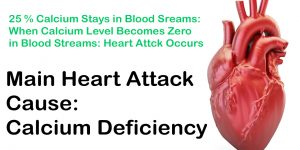Why Christians Does Not Keep Jewish Feastivals?
| Author | Posts |
|
In order to understand why Christians don’t keep these feast days we need to know what they represent and the reasons God had His people keep them. I’ll present below the five major festivals of the Jewish calendar year. Then I’ll discuss their meanings and the reasons why Christians don’t keep each one. (1)‡Unleavened Bread, a week-long event (which immediately followed the Passover supper held the preceding night) in the middle of the 1st month, at the beginning of the barley harvest (Lev 23:5–14) (about the time of our Easter) (2)‡The Feast of Weeks (Pentecost), fifty days after the first sabbath of Unleavened Bread, celebrating the season of the wheat harvest (Lev 23:15–21; Ex 34:22) (3) The Feast of Trumpets on the 1st day of the 7th month, the civil New Year’s day. (4) The Day of Atonement on the 10th day of the 7th month, the cleansing of the Temple. (5)‡The Feast of Ingathering, or the Feast of Booths or Tabernacles, in the middle of the 7th month, at the close of the olive and fruit harvest (Lev 23:34–44; Deut 16:13) (This occured only a few days after the Day of Atonement which was celebrated on the 10th day) What did these festivals mean and why do Christians feel that we should not keep them.? (1)‡The Feast of Unleavened bread: The night before this feast every family celebrated the Passover in their homes. The day after the Passover–the very next day–was the beginning of the Feast of Unleavened Bread. The prohibition of the use of yeast, as practiced the night before at the Passover celebration, continued for seven days after the Passover. The first day was a ceremonial sabbath. (When this sabbath fell on the weekly Sabbath, the Pharisees of the time of Christ called it a “high day.”) Just as with the weekly Sabbath, no one was allowed to work on this day. 1 Cor 15:3, 4 For what I received I passed on to you as of first importance : that Christ died for our sins according to the Scriptures, that he was buried, that he wasraised on the third day according to the Scriptures, 1 Cor 15:20 But Christ has indeed been raised from the dead, thefirstfruitsof those who have fallen asleep. There is no need for Christians to participate in this festival because the death, burial, and resurrection of Christ to which it points have already taken place. The feast has become obsolete. (2)‡The Feast of Weeks,later called Pentecost, took place 50 days after the waving of the sheaf. This festival celebrated the beginning of wheat harvest. (3) The Feast of Trumpets (4) The Day of Atonement. On this day two goats were brought before the High Priest. He cast lots over them to chose which one would be the Lord’s goat. The other goat was called the scape goat and was put aside. The Lord’s Goat was killed and sacrificed on the altar. Some of it’s blood was taken into the innermost room, called the Most Holy Place. The High Priest sprinkled some of the blood on the mercy seat of the Ark of the Covenant and some on the ground in front it. As the High Priest left the Most Holy Place he wiped some of the blood on the horns of the altar of Incense which stood before the curtain which separated the Holy Place from the Most Holy Place. In effect, he was taking upon himself all the sins that the Israelites had confessed throughout the year by bringing their animals for sacrifice in the Temple. Coming out of the Temple, the High Priest placed his hands upon the head of the scape goat and confessed all the sins of Israel upon him. Then the scape goat was led by a strong man out into the wilderness, where he was let go—a fitting symbol of the removal of all sin from the nation. The Lord’s goat represented Christ who died upon the cross as a sacrifice for the sins of everyone who has ever lived. The High Priest represents Christ in His role of our great Intercessor in Heaven. He brings our names before the Father and proclaims that we have accepted Him as our Savior. In effect, just like the Day of Atonement was a day of judgment, so the great Day of Atonement in Heaven is a day of judgment for the people of God (read the judgment scene as depicted in Dan. 7: 13, 14 ff). Christ will decide whom, of all who have professed to be His disciples, has really accepted Him and let Him reign in their hearts. When the judgment is finished, then Christ will come and reward His servants for their faithfulness. This annual “day of judgment” prefigured the cosmic judgment of all of God’s people. Whoever refrains from, neglects, or refuses to repent of his/her sins at that time will be cut off from God’s people. The first part of the Day of Atonement has already taken place—the Lord’s Goat (Christ) has already been sacrificed for the sins of His people. The second part—Christ, as our High Priest, entering the Most Holy Place of the Temple in heaven, presenting His blood before the Father—is taking place right now in Heaven. Christ is investigating the lives of all who have professed to be His followers. Those who have been true to Him will be marked as His people. Those who have not been faithful will be rejected. Soon Christ will finish this work and return to reward those who were faithful to Him, by taking them to His eternal Kingom. (5)‡The Feast of Ingathering(the Feast of Booths or Tabernacles) celebrated the ingathering at the end of the harvest, particularly of the grain, olive, and grape harvests. It also reminded the Jews of the 40 years of wandering in the wilderness. This was the last feast of the religious year and usually came during our month of October, after the autumn harvest was over and the fruit had been gathered in. It was a joyous occasion for all. The Day of Atonement was past; all misunderstandings had been cleared up, all sins confessed and put aside. The Israelites were happy, and their happiness found expression in the Feast of Ingathering (Booths, or Tabernacles) Since the antitypical* Day of Atonement takes place before the coming of Jesus, then this joyous feast, which comes at the end of the harvest, would most likely represent the joy of God’s people as they take their places in the New Jerusalem. Their wandering in the wilderness of sin is past. Eternal life in the heavenly Canaan will be the reward of God’s people. *An object casts a shadow when standing in sunlight. The shadow is the type, the object itself is the antitype. The Day of Atonement in the ceremonial year is the type; the “investigative judgment” that takes place before Jesus comes is the antitype. Another way to say the same thing is: the Day of Atonementprefiguredthe judgment in the last days. 1 Horn, Siegfried H.,Seventh-day Adventist Bible Dictionary, (Washington, D.C.: Review and Herald Publishing Association) 1979.
|
|
|
Thank you so much for your lovely post! Since October 2013, I’ve been aware of the Hebraic foundation of the Christian faith. Been researching, studying and internalizing God’s Appointed Times. I’ve been procurring the Jewish calendar and Mo’adim (Bereansonline) so that I could prayerfully observe the Jewish Feasts and Festivals. Pastor Mark Biltz of Elshaddai Ministries in US has been very helpful and informative. First Fruit of Zion, as well.
|
|
|
Thank you @WHYZ’DAT?, May Glory Be to God. It is wonderful to hear that. You are welcome to Christian Life. But I have a question. Do yo realize that Christians today must still keep the Sabbath day? For the Sabbath was not a shaddow and had instituted since the seventh day of creation before any sin has been commited. Therefore, the Sabbath was not a part of the ceremonion jewish law for sin. The Sabbath points us to creation and the Creator but not to the jews. |
|
|
Thank you @WHYZ’DAT?, May Glory Be to God. It is wonderful to hear that. You are welcome to Christian Life. But I have a question. Do yo realize that Christians today must still keep the Sabbath day? For the Sabbath was not a shaddow and had instituted since the seventh day of creation before any sin has been commited. Therefore, the Sabbath was not a part of the ceremonion jewish law for sin. The Sabbath points us to creation and the Creator but not to the jews. |
You must be logged in to reply to this topic.









